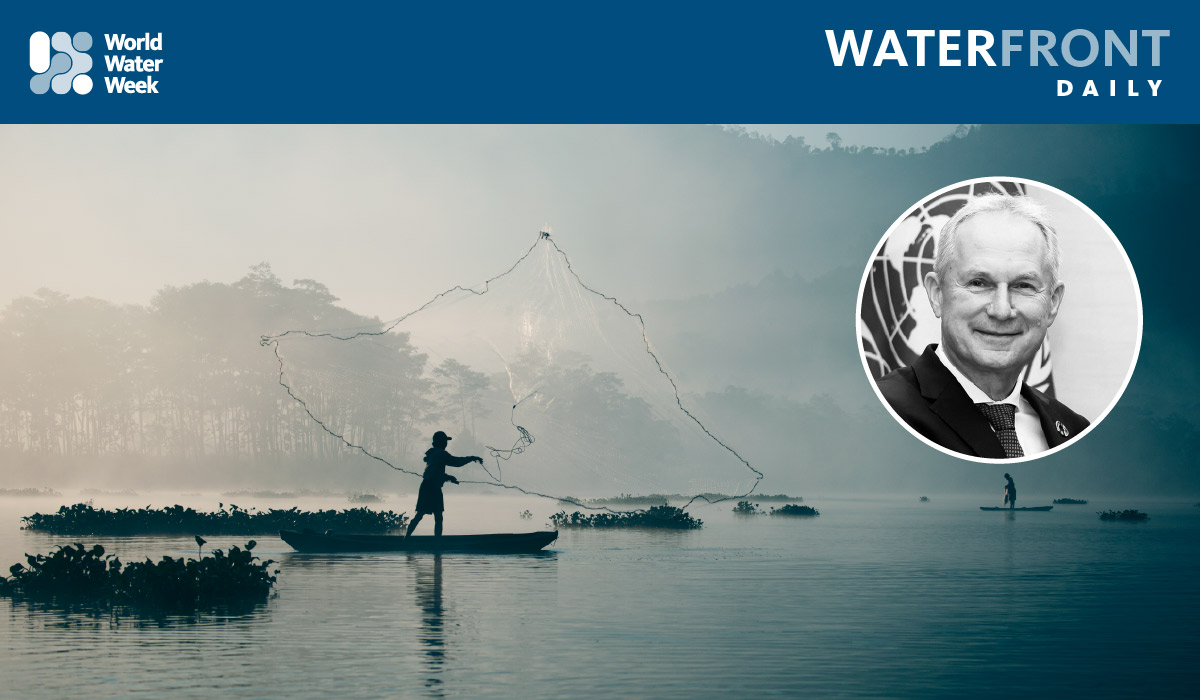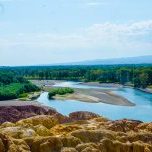Stockholm, Aug.21(CED) — With the aim to Explore innovative ways to tackle the global water crisis, World Water Week 2023 began on Aug.20. Housed for the first time in Stockholm Waterfront Congress Centre, World Water Week welcomes, as it has for over 30 years, participants from all over the world to join hands for a better water future.
The President of the UN General Assembly H.E. Csaba Kőrösi talked about progress so far and the role that World Water Week can play.
One of the hottest topics at this year’s World Water Week is what has come out of the UN 2023 Water Conference in March and the first half of the Water Action Decade.
The President of the UN General Assembly H.E. Csaba Kőrösi has talked about progress so far and the role that World Water Week can play.

World Water Week is an important annual moment for collective action, this year perhaps more than ever. Scrolling through the programme, you find many sessions discussing the outcomes of the UN 2023 Water Conference from different perspectives. On Sunday, participants could for example follow discussions focused on aspects like transboundary cooperation, disaster risk reduction and innovation for Sustainable Development Goal 6.

A broader perspective will be taken on 22 August when World Water Week will host a High-Level Panel Follow-Up on the UN Water Conference, gathering some of the leading water and development personalities. One of the speakers is the President of the 77th session of the UN General Assembly H.E. Csaba Kőrösi and we asked him to share some reflections with the WaterFront Daily readers.
What has happened after the UN 2023 Water Conference and how does this relate to the upcoming SDG Summit?
Let’s be honest with where we are with the SDGs – halfway through, we are alarmingly off track when it comes to implementation. The SDG Progress Report 2023 Special Edition, which was recently published, indicates that only 12 percent of the targets are really on track. So, at the SDG Summit in September, we need very honest accounts on where we are, what are the reasons for this, and which is the road ahead for transformative progress.
Here the UN Water Conference comes in because it had an influential format, and we have designed the SDG Summit taking features from that.

What matters is not just the speed of implementation, even though that is important. But even more, it’s a matter of changing the game, changing the gears, changing the direction. Just as we did with the UN Water Conference, we need to find gamechangers and acknowledge where there are missing pieces.
Based on that we need a kind of roadmap for the remaining 7.5 years of implementing time. Last, but not least, I truly believe that we need a science- and evidence-based verification system of the implementation. If we can pull it together, it will be very much logical after the UN Water Conference, and it can be a serious promise to the world that our recommitment to the implementation of the SDGs is credible.
What role can World Water Week play to accelerate progress and collective action?
A lot! Not only because it is one of the most important water events of the year, but let me be very concrete about my asks, requests, and expectations.
I think World Water Week can help closing some of the old debates that are not taking us forward. For example, debates about the nature of the hydrological cycle, if it is a global common good. Now we can say that, like it or not, we have shared responsibilities for the water resources belonging to the same catchment area. The water crisis has economic and social consequences across the globe.
I expect World Water Week to highlight this and the responsibility everyone has for their actions and inactions.
I’m glad it has been reconfirmed that water and sanitation is a basic human right, but we must also talk about responsibilities.
World Water Week is important for solutions and implementation. I hope there will be a good deal of discussion on very concrete forms of solutions. How to avoid further water crises and how to reduce and mitigate the impact of the ongoing water crisis.
This requires a new economic approach and a transformation, not just an add-on to the traditional way of development, the traditional way of doing business. It is changing the way of doing business. World Water Week can contribute to this also by strengthening the very much needed scientific approach. There is a way out of the water crisis and that is through scientific evidence.
What’s next in global water policy?
The High-Level Panel Follow-Up on the UN Water Conference is just one of several sessions at World Water Week that assesses progress on the global water agenda. Check out the programme and register to attend if you haven’t yet done so.
Xuefei Chen Axelsson reporting according to Waterfront Daily, a summary of daily event at Water Front during the World Water Week being held during Aug. 20-24th. 2023.


